
SG Lewis: “I was using a completely different part of my brain for this album, with a different objective”
With his second album, AudioLust & HigherLove, out now, Sam George Lewis talks us through his collaborative workflow and the art of sampling tastefully.
SG Lewis intended to take some time away from music after handing in his debut album in 2021. “I had planned to go travelling and get inspired,” the London-born, LA-based singer, producer and DJ says. However, after just two weeks off, boredom struck. His resolution? Start working on another record.
Heading to residential studios across the UK, Lewis brought musician friends Ed Drewett, Reuben James, Jay Moon, Frances, and Julian Bunetta on board for recording his sophomore album, AudioLust & HigherLove. The group was also joined by esteemed producer Totally Enormous Extinct Dinosaurs, whom fanboy Lewis first met in a club five years ago. “We set up in a band formation so it was very different to what I had been used to and, because travel was restricted, it was like we were locked away from the rest of the world.”
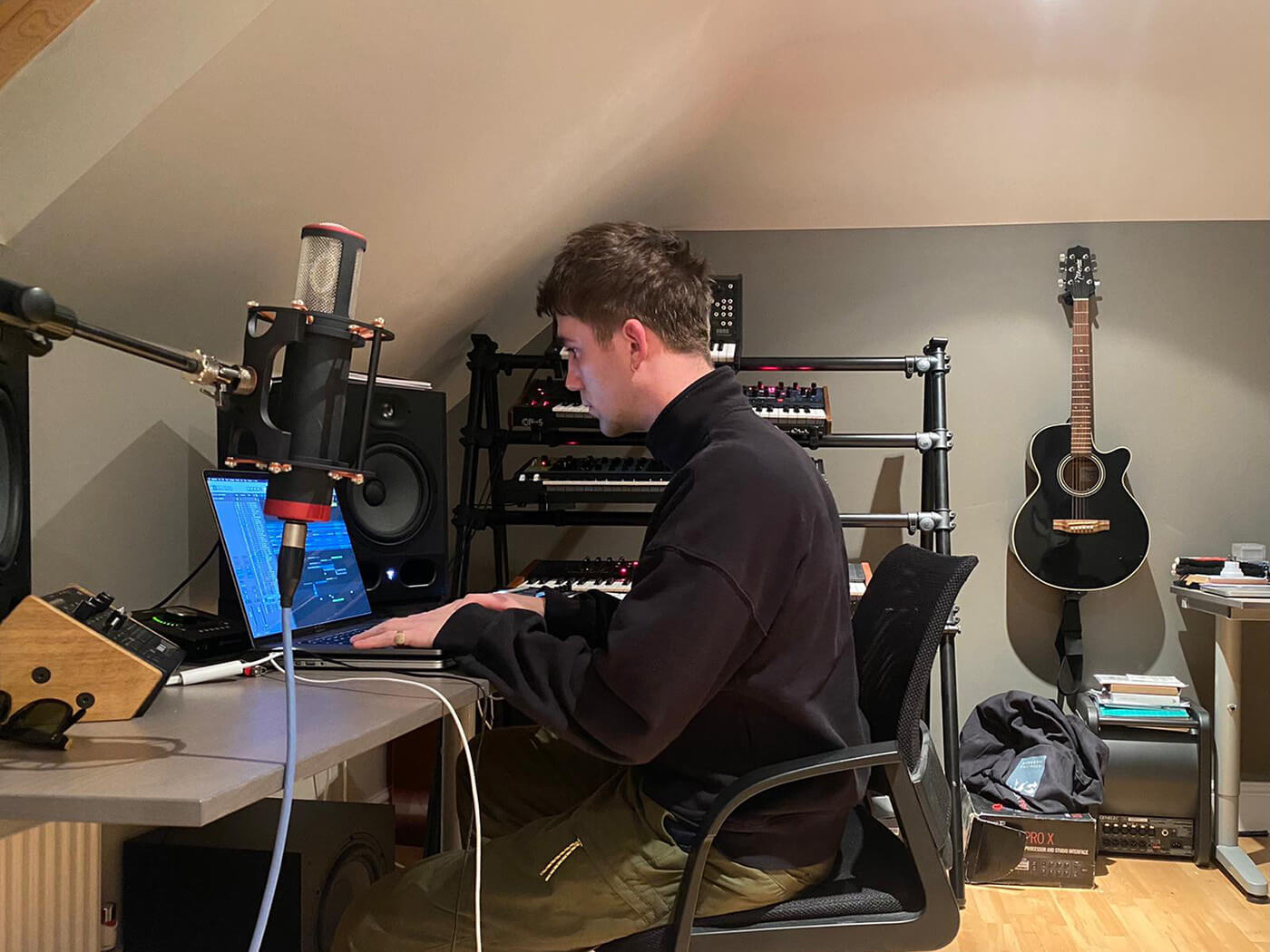
Working with other musicians was “awesome”, Lewis adds. “You build a level of trust and comfort where you’re willing to try things that you wouldn’t have tried otherwise. Once you’ve been in the studio for three or four weeks, the fear of embarrassment and rejection disappears.” For him, being in the studio means “you’re able to amend your creative decisions based on the energy and the back and forth energy.
“Plus, you’re then not afraid of doing something shit, which means you are more willing to put daring ideas to the room”.
This freedom to experiment runs through AudioLust & HigherLove, which covers a wider pool of genres than 2021’s times. Lewis’ debut album was made with kitchen disco parties in mind but album two – boasting several confident guitar solos by Lewis – sounds like it was made with arena ambitions. “The live show is as true a recreation of the studio process as I can give people live;” the producer says. “With six of us on stage, between us, we can play everything”.
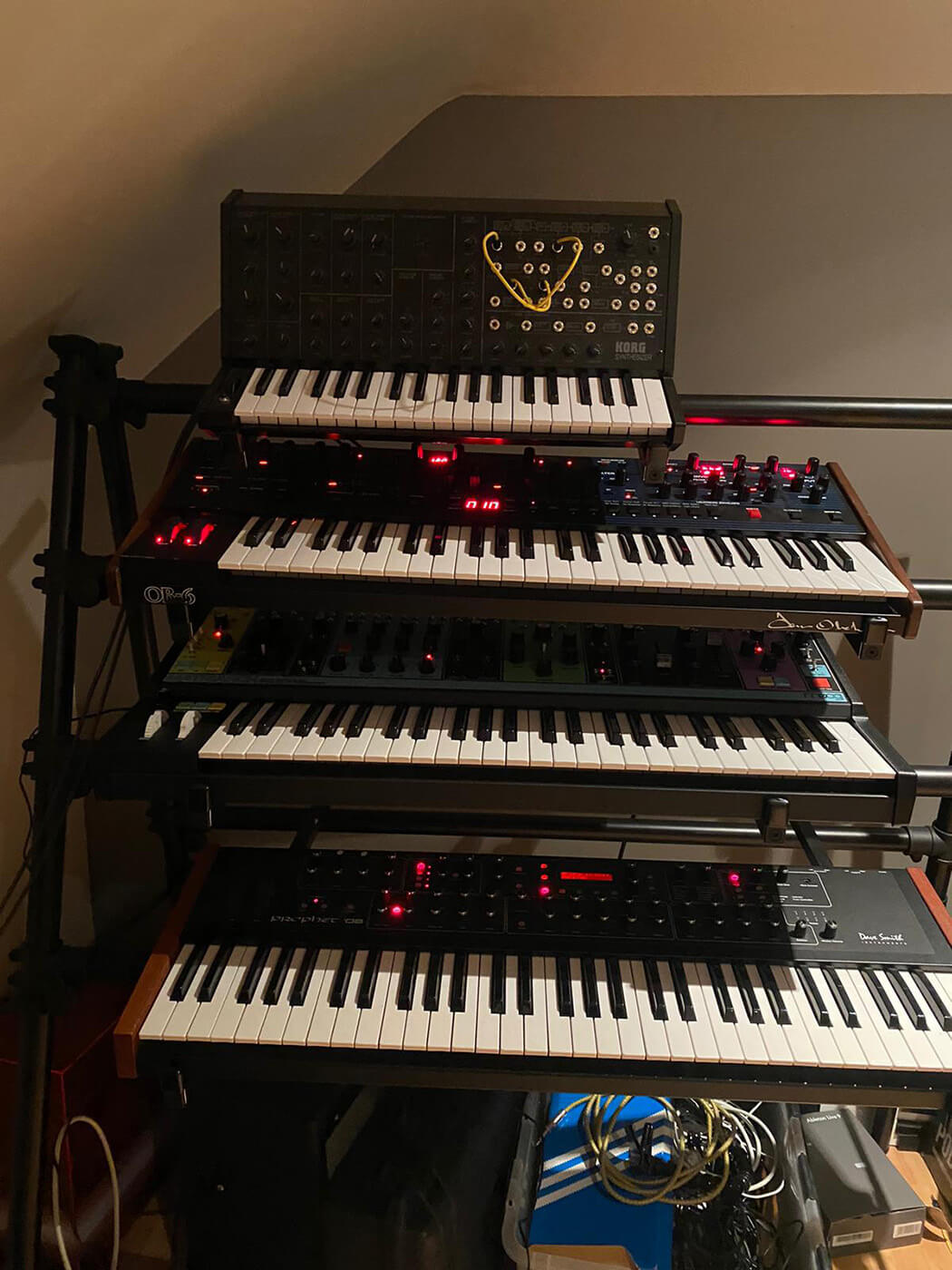
Lewis adds that, contrasting times, there are fewer soft synths and virtual instruments on the album. Instead, it consists of audio that was recorded from analogue synths, live drums and live instruments. “It was a case of: play some chords, sing some melodies, scratch it down, move on, try some drums. It was very free-searching and that was a result of the studios we were in and our setup.” Because this approach and its outcomes were so different to his debut album, Lewis says “it didn’t feel like I was mining from the same well of creativity as the last record. It felt like using a completely different part of my brain, and with a different objective.”
But, rather than setting out to purposefully evolve his sound, Lewis says it happened naturally. “As much as I think there’s merit in doing something different, I would be extremely bored of myself and the process if I was to try and make times part two.”
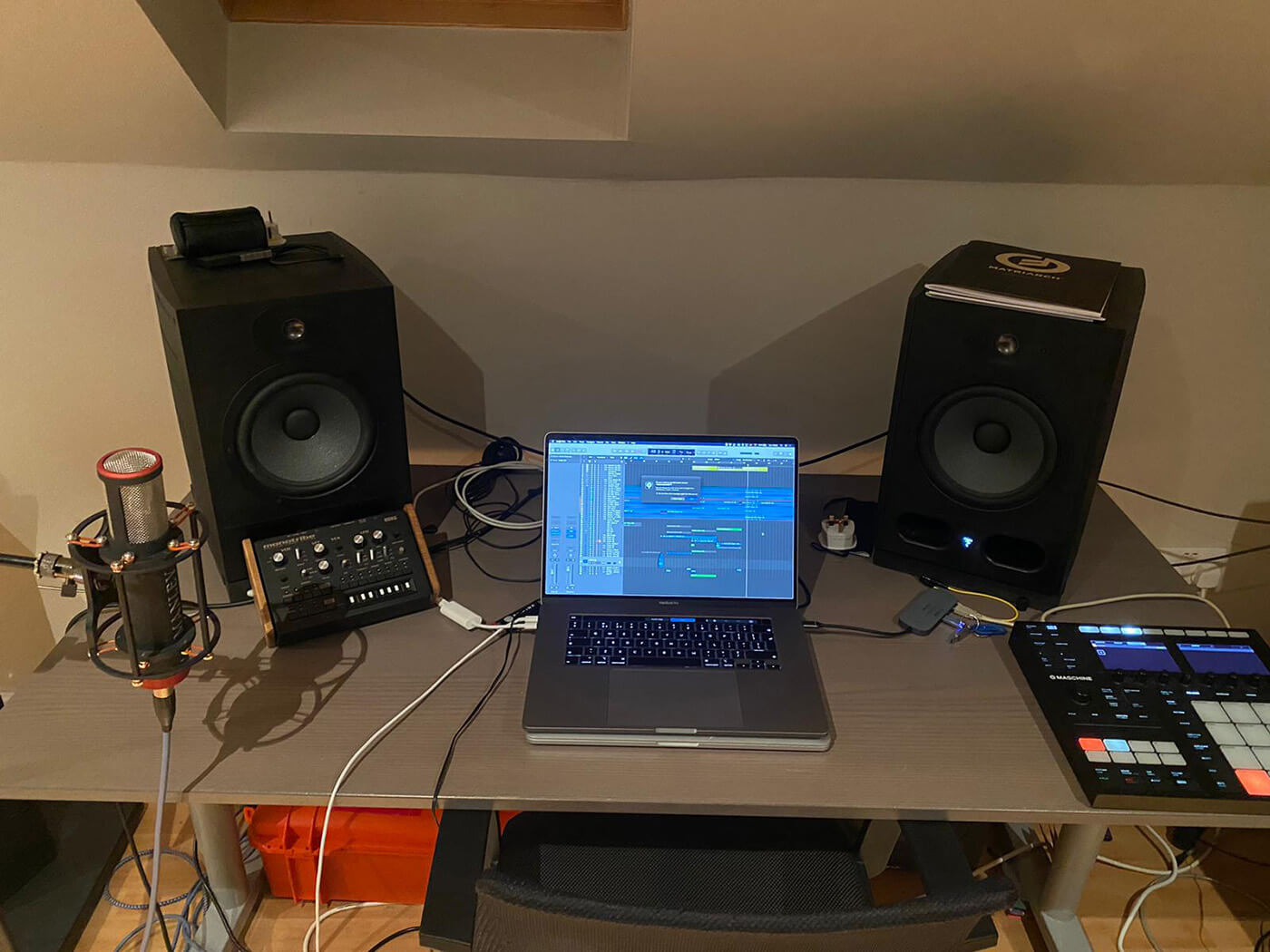
Taking on the role of primary vocalist and songwriter first, then producer second, Lewis says his brain was more dialled into the songwriting and performance. The group worked at a pace where speed was of the essence. “It was a case of playing the part, getting it down and focusing on the songwriting.”
So what is SG Lewis’ songwriting process? “Feeling always leads with my music. Sometimes I’ll have a lyric written down, but something’s got to feel or imply an emotion before lyrics come.” With this record, he noted certain words down – ‘infatuation’, for example – with the aim of exploring it through music.
“There was definitely more lyrical direction than in the past.” Lewis says this was partly because he was in a different headspace: “times was for everyone else; an observation of other people and a period of time. Whereas [AudioLust & HigherLove], through the forced isolation of the pandemic, was more an album for me and slightly more introspective.”
This sense of self-reflection relates to the album’s title and concept, through which Lewis wanted to “explore the two different ways people approach love and relationships; the toxic infatuation, rushed version of love, and the more fulfilled, actualised, lasting version of love that is celebrated in pop culture and portrayed as the idea of perfect love”.
Partly due to its more personal themes, Lewis’ own vocal is more prominent than on his debut. “Although times was largely collaborative, the biggest record ended up being Chemicals, a song I sang on. That gave me the green light and instilled this confidence to explore my own vocal,” he says. As he hadn’t previously sung on many tracks, he says “I didn’t know about my own voice or its limitations, so this album was also an exploration of myself as a singer”.
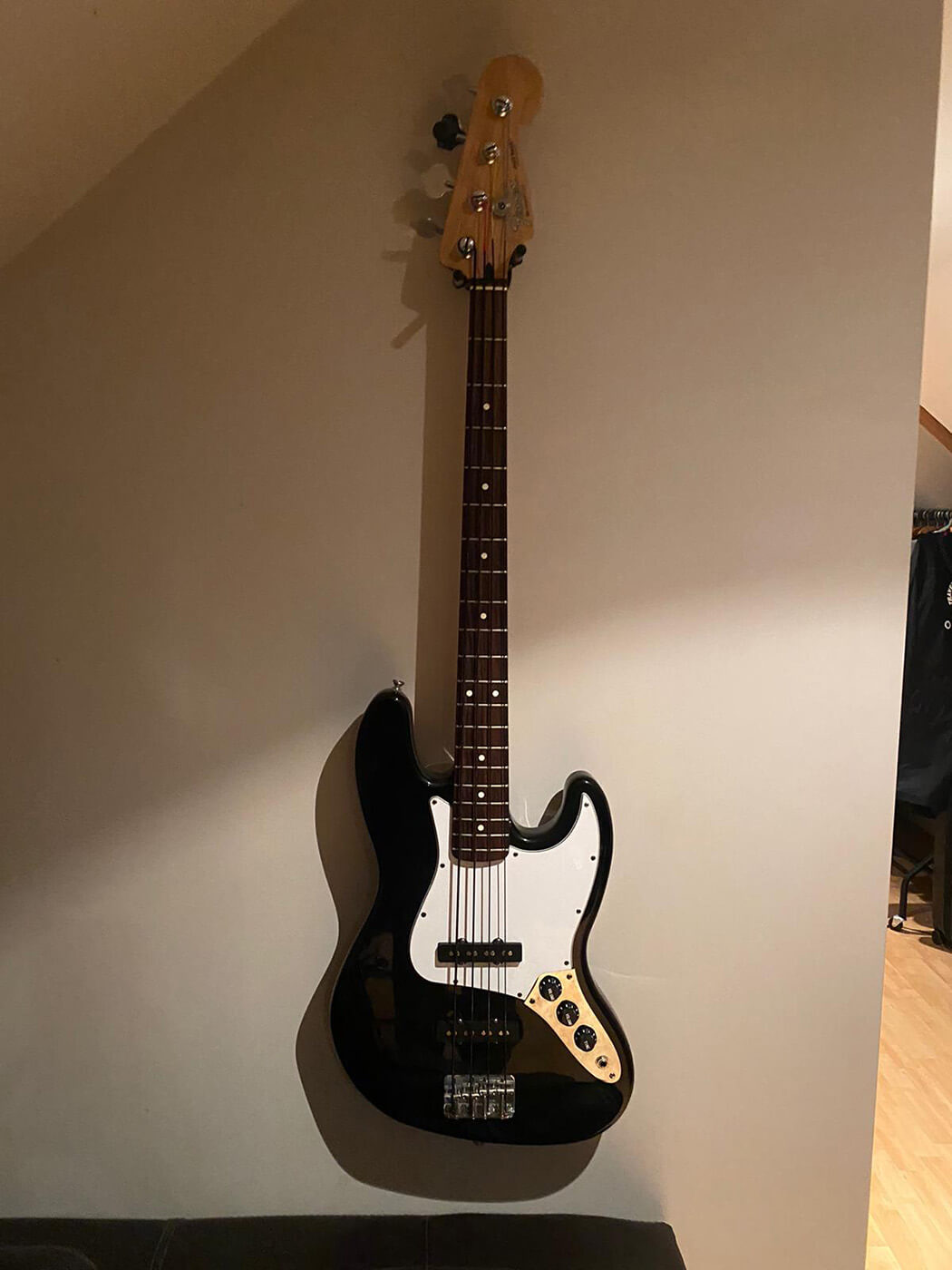
Sonically, Lewis adds that much of AudioLust & HigherLove was the result of a lack of exposure to club music. “I wasn’t spending any time in clubs, because they didn’t exist, so the context for club music disappeared. I ended up listening to different music and being inspired by things that weren’t necessarily attached to the club,” he says.
This time away from dancefloors afforded him the chance to dive into a period of music that he hadn’t been exposed to growing up. “There was this whole area of 80s pop music that I began to study: Steely Dan, Bobby Caldwell; a lot of musicianship and interesting songwriting that resonated at the time”. He was particularly drawn to this era – as well as yacht-rock, new wave and Belgian dance music – because “it was a time when musicians were figuring out how to use machines to make pop music”.
Key to the creation of the album was the influential Yamaha DX7 synthesizer. “Because I was listening to so much 80s music, I tracked a DX7 down and bought one. It’s such an iconic keyboard. It has so many sounds that are typically 80s-pop-leaning, so I thought it would be fun to use some of those across the album,” Lewis says. “I thought that synth nerds would pick up on the references.”
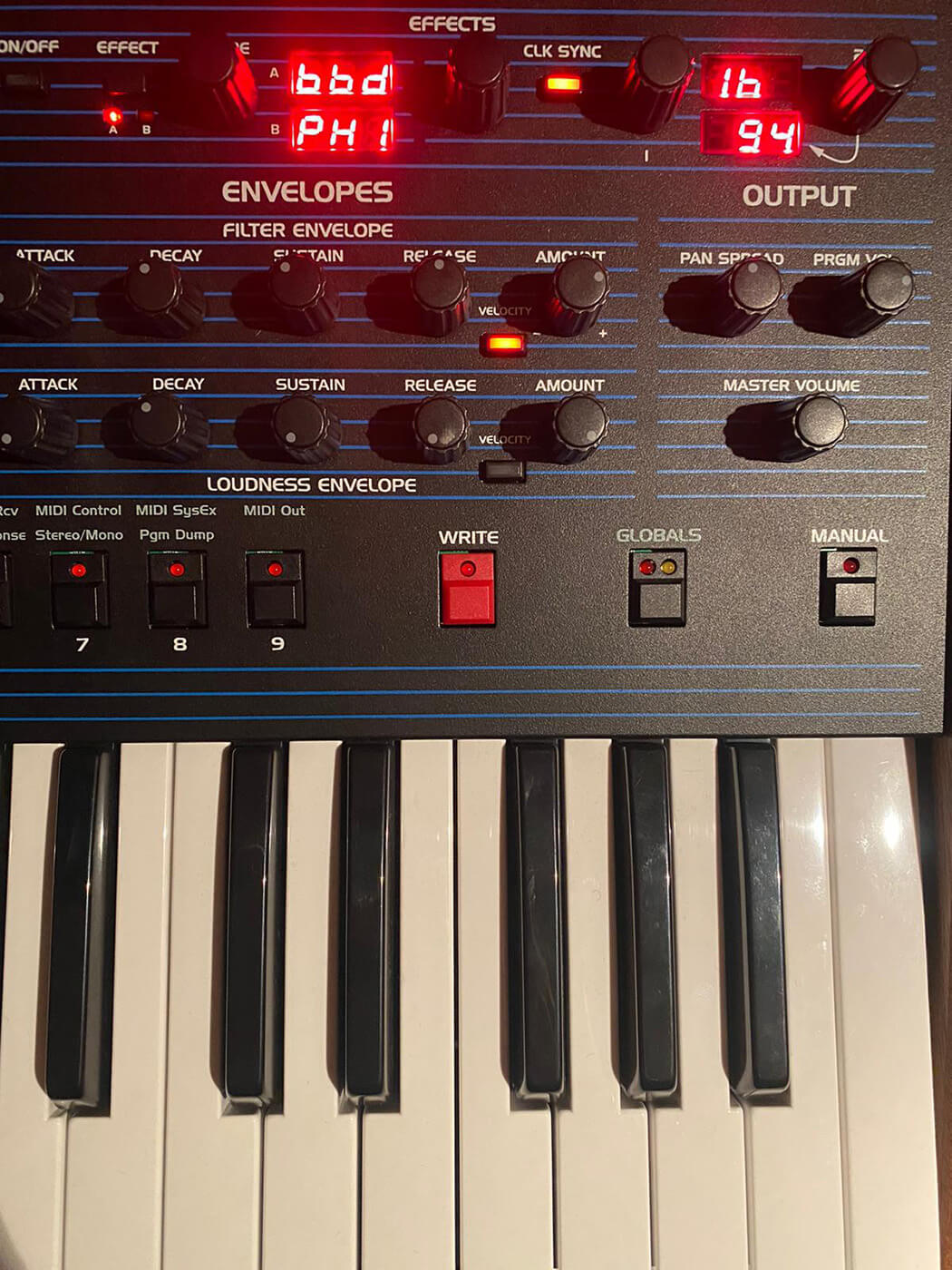
However, rather than wanting to emulate a forgotten era, Lewis aimed to take elements that he liked. “It’s never trying to replicate it, it’s more ‘that sounds cool, I want to use that’,” he says. “But then, through the decisions you make, it ends up feeling different.” An example is the Tove Lo collaboration Missing You’ although it has some typically-80s sounds, “the energy, production and way it’s produced wouldn’t have been possible, which stops it from sounding like an 80s record. The way the low-end hits, the frequency spectrum and the compression gives it a modern spin.”
Daft Punk’s influence also found its way onto SG Lewis’ new record. “I feel as though their presence is felt across my discography,” he says, adding that Something About Your Love – which samples Force M.D.’s 90s R&B slowjam classic Tender Love – is actually a tribute to the French electronic icons. “It happened because of their retirement from music,” he says. “I was so bummed about them splitting up that I decided to make an ode to them. Part of me hopes they never hear it because, if they hated it, I think it would break me.”
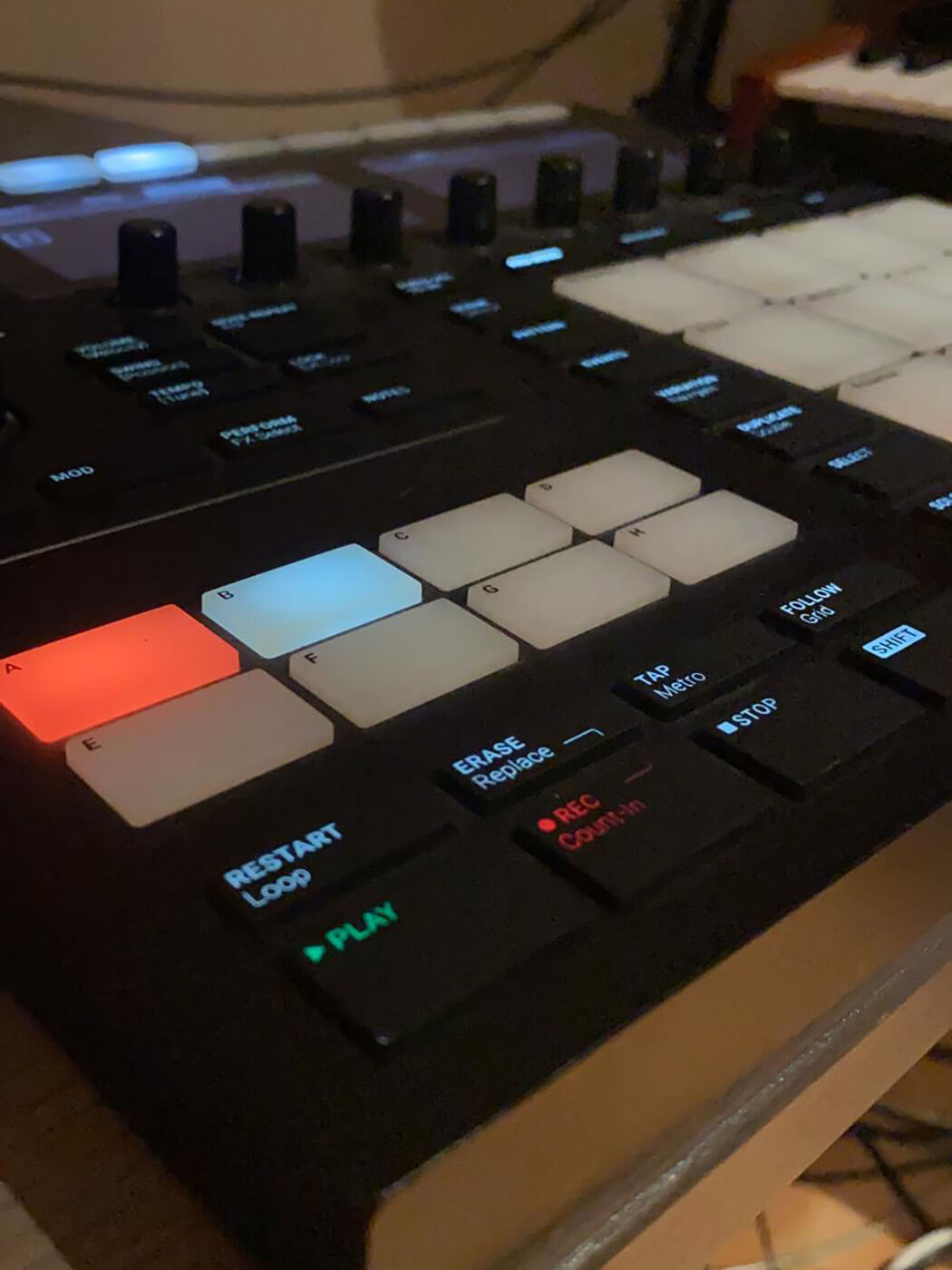
There are some more samples that Lewis is not sure anyone will ever find; “very subtle chops and textures from different places that people might not ever pick up on, which is fun to sneak in”. When it comes to sampling, he suggests there is a delicate line to tread in ensuring it’s done tastefully. “Using any tools in order to achieve what you need to achieve is valid, but it’s the difference between that and lots of modern music that relies on a familiar sample to engage an audience. That’s a less nuanced way, compared to using something because it’s sonically interesting or it inspired something within you.”
Alongside these undisclosed samples, the album also boasts collaborations with Tove Lo, Ty Dolla $ign, Lucky Daye, Channel Tres and Charlotte Day Wilson. Rather than specific criteria around potential team-ups, Lewis says “it’s more about if I’m a fan and think I can add something to it. There are people that I’m a fan of, but I’m not sure what I could add,” he says. “The main thing is, as long as I have some form of emotional connection to their music.”
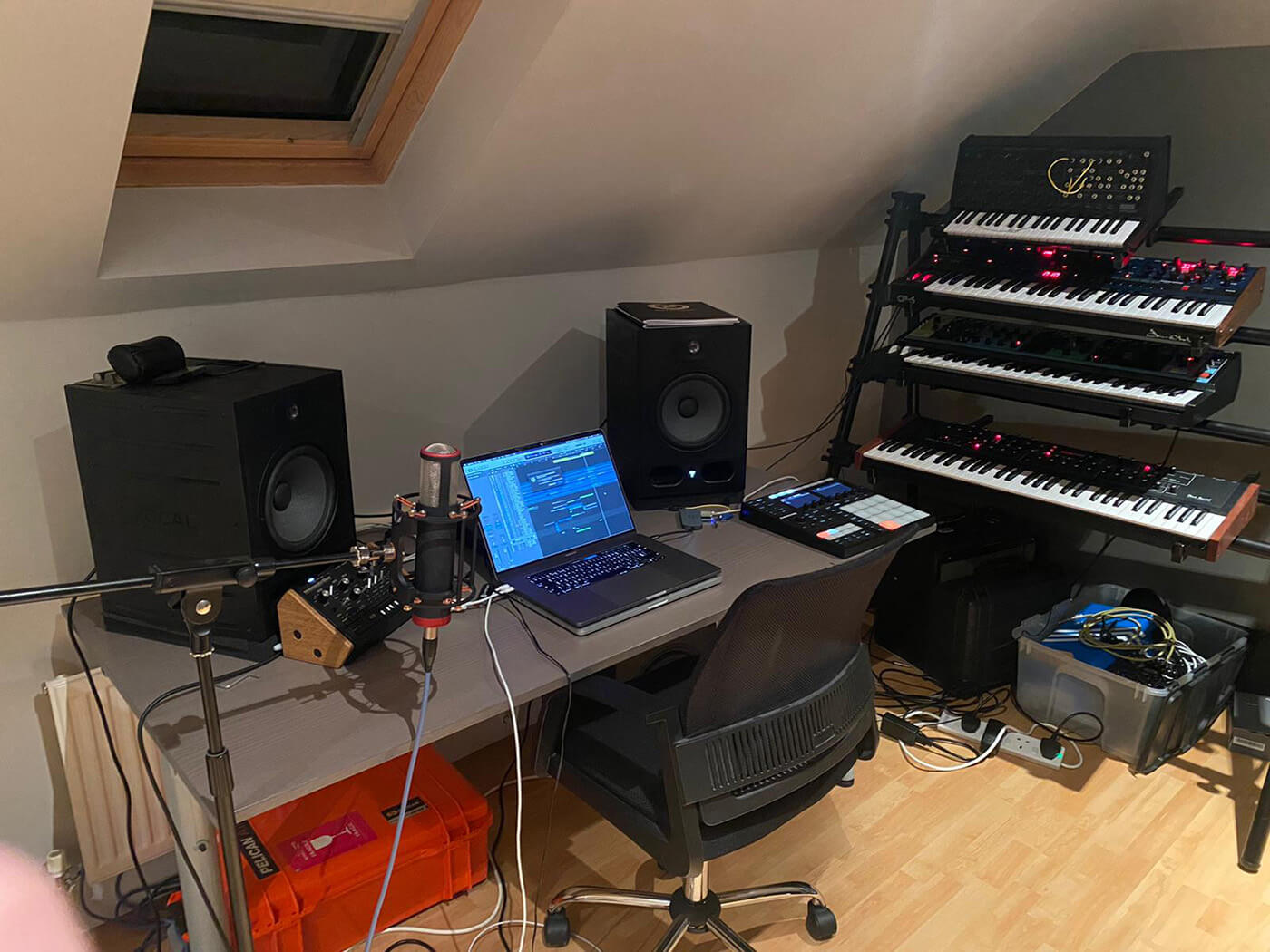
Talking about his producer process when on a “studio speed dating” session, Lewis is “looking for the link between the world I’m building and what they do. There’s always a mutual taste or sound or something that connects you. Even if the artist you are working with exists in a different space, you have to find that bridge – and that’s a case of getting on the same wavelength creatively.”
Despite having worked with many of the biggest names in music, Lewis sometimes suffers from imposter syndrome. “It’s just a little voice in your head; it doesn’t matter how many people cosign you or want to work with you, every time I step in the studio, it’s like making music for the first time again; ‘what if this doesn’t work? Do I know what I’m doing?’ That never really goes away.”
To everyone else, though, his talent is undeniable; some music publications have referred to Impact, his banger with Robyn and Channel Tres, as pop music genius. “It’s very flattering to read, but until I’ve achieved everything that someone like Max Martin has achieved, or had 15 Billboard number ones, I’ve got learning and growing to do. But I would love to produce some of the biggest pop songs for the world’s biggest artists – that’s definitely an ambition of mine.”
AudioLust & HigherLove is out now.